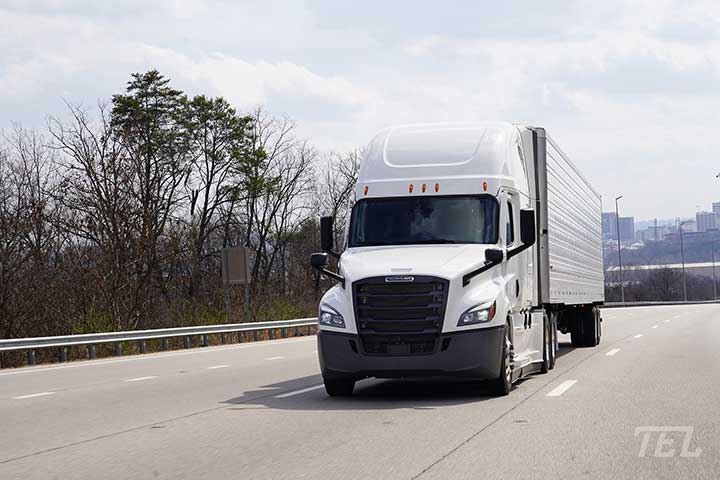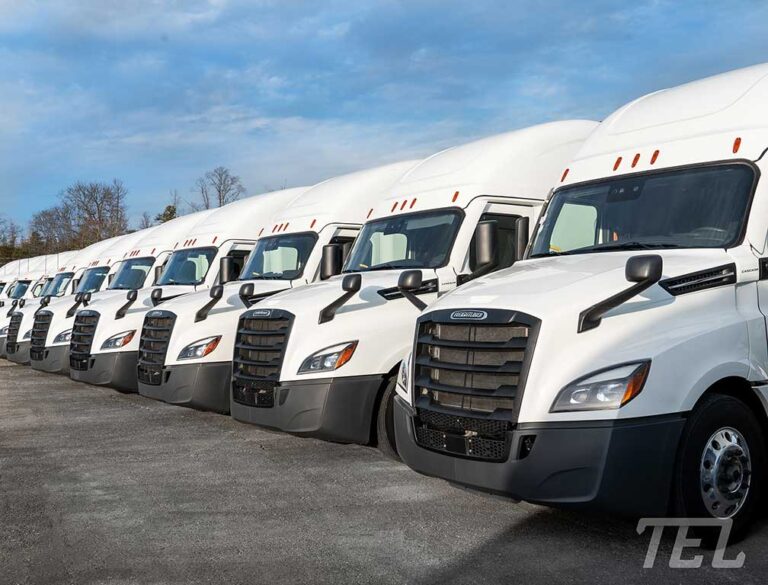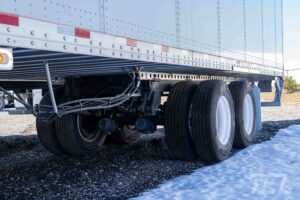Looking to manage costs? A “full-service” fleet leasing option can help.
As a business owner, you know that maintenance of your fleet equipment is one of the largest expenses your company will incur. Fleet maintenance can also directly impact operations.
You might opt for a full-service lease option to ensure maintenance is accounted for and to help provide a fixed cost for this planned expense. The problem that many companies quickly realize is that these full-service lease options are not all the same.
“Full-service” lease options can be extremely limiting and have hidden or unrealized added costs.
So, what options do you have?
First, it’s critical to understand the “full” cost of your lease agreement. Second — do your research. There are companies like TEL that are changing the traditional lease model to help businesses save money.
To start, all of TEL’s leased trucks are new equipment that is covered by the factory warranty. TEL also provides a customizable fair market value lease, coupled with their nationwide fleet maintenance service included in the lease.
So, with TEL you don’t pay a monthly “full-service” fee. Instead, you get TEL’s included priority service. This is a team of maintenance advisors that advocate getting your equipment in and out of the shop at reduced pricing. Their priority-service gives you access to most all OEM service centers and other national service groups throughout the country.
This gives you the control of when and where you schedule your maintenance.
Conversely, when managing a fleet of trucks on most “full-service” lease programs, you’re most often required to service your equipment through a limited network of service centers.
Always check to make sure the network of service centers aligns with your trucking routes. If not, this could pose a real challenge. You might find yourself needing routine service, but there’s only have one service center in a 50- or 100-mile radius. This could cause you to experience excess downtime while waiting for your truck(s) to be serviced.
Because your truck and everyone else’s trucks are reduced to using this one limited network, wait times can be excessive, but that is not the end of the woes.
Because the service is being performed by the mandated “in-network” service center, that shop is required to fix any and all repairs that might affect the value of the leased asset. This could be regardless of functionality and in excess of DOT minimums.
This is another chief complaint of “full-service” leases. You might take your unit in for service — and you’re suddenly required to replace (and pay for) a new front bumper due to a small crack. Because most repair facilities don’t have their own body shop, replacing a bumper could add to the downtime of the vehicle.
Also, the added expense for parts and labor is not included in your “full-service” lease fee.
However, companies like TEL provide a vast maintenance network and discounts on truck parts and labor costs. You only pay for what is needed to get your equipment back on the road.

TEL’s “No Surprises” lease program consists of, No Mileage Charges, No Rate Adjustments, No CPI Clauses, and No Variable Charges for the life of the lease.
This fixed-price leasing model provides business owners the ability to plan ahead with fixed costs while budgeting for continued growth. Add in the TEL nationwide priority-service maintenance network and discounts on truck parts and labor, then you have what TEL has termed the TEL360 Advantage.
For more information on TEL’s Fleet Leasing program call 423-214-3910 or visit TEL360.com.
Linda Garner-Bunch has been with The Trucker since 2020, picking up the reins as managing editor in 2022. Linda has nearly 40 years of experience in the publishing industry, covering topics from the trucking and automotive industry to employment, real estate, home decor, crafts, cooking, weddings, high school sports — you name it, she’s written about it. She is also an experienced photographer, designer and copy editor who has a heartfelt love for the trucking industry, from the driver’s seat to the C-suite.








